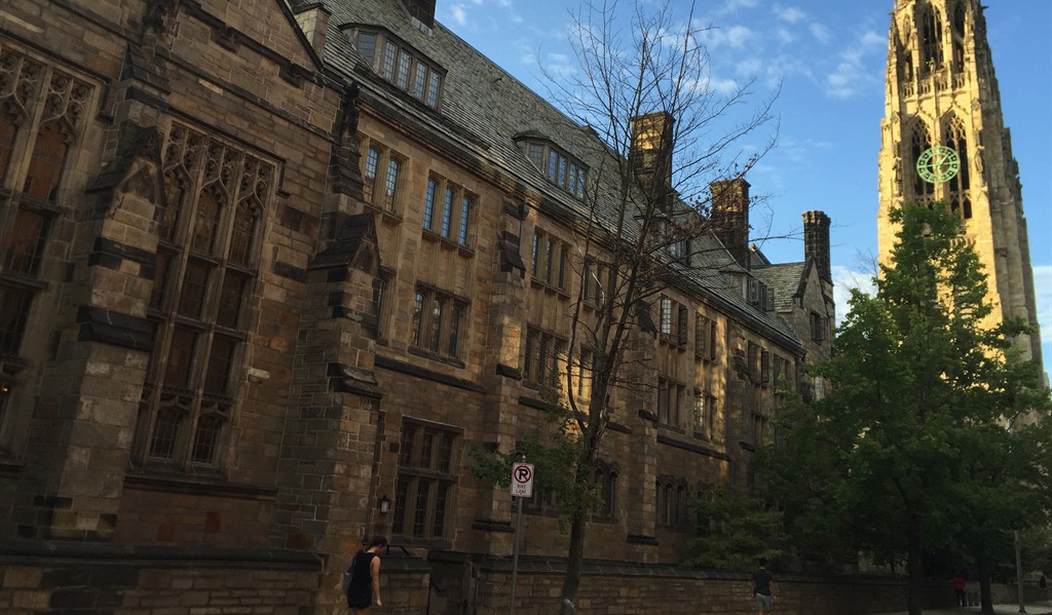At Yale University, they care about descendants of slaves. Therefore, they’re sending them to other schools.
The export is part of the Ivy League institution’s attempt to diminish slavery’s generational impact — though the program doesn’t appear to involve any sort of determination of whether those benefitting actually descended from slaves.
Last month, Yale President Peter Salovey announced the Pennington Fellowship. The project is aimed at local high school students.
The December 12th letter’s opening:
In October 2020, Yale launched a set of programs — based on your input and the recommendations of the President’s Committee on Diversity, Inclusion, and Belonging — to create a stronger and more inclusive Yale. As the Belonging at Yale initiative continues in its third year, I write to announce the creation of a new scholarship program — the Pennington Fellowship — that responds specifically to the research of the Yale and Slavery Working Group. This new initiative, one among an anticipated set of responses to the working group’s findings, supports New Haven public school students who choose to attend Historically Black Colleges and Universities (HBCUs) and strengthens our connections with these institutions. I provide more details below.
“In the coming days,” the missive explains, “University Secretary and Vice President for University Life Kimberly Goff-Crews will share with you the progress of other efforts associated with Belonging at Yale, including public safety, financial aid, and support for postdoctoral scholars, staff, faculty, students, and alumni.”
In 2020, the Yale and Slavery Working Group was formed — “to examine the university’s historical roles in and associations with slavery, the slave trade, and abolition.” The association was chaired by the director of the Gilder Lehrman Center for the Study of Slavery, Resistance, and Abolition.
President Peter laments that the Yale and Slavery Working Group “made [the school’s] past vivid and concrete.”
Among the working group’s discoveries are details concerning those individuals within the Yale and New Haven communities who thwarted a proposal in 1831 to establish in our city what could have been this country’s first institution of higher learning for Black students.
Hence, the new school-funded scholarship will “support New Haven high school graduates who attend HBCUs.” Such will address, “in part, historical disparities in educational opportunities for Black citizens.” Recipients “will receive up to $20,000 toward tuition and fees per year for each of four college years.”
They also will be supported in their academic, financial, and career entry success through mentorship opportunities, structured internships, resume workshops, and other programs organized by New Haven Promise. Fellowship applications are being accepted now, and the first group of Pennington Fellows will begin college in the fall of 2023.
The notion of reparations for black Americans is certainly nothing new. But in recent years, it’s picked up steam:
Rhode Island City Enters Phase 2 of ‘Black and Indigenous’ Reparations
WATCH: Reparations? Civil Rights Leader Slams ‘Buffoon’ Al Sharpton & the ‘Scam’ of ‘Blame Whitey’
Don Lemon Stumps for Reparations, British ‘Royal Commentator’ Leaves Him Ending the Segment
Reparations Activist Demands $350,000 for Every Black Californian
Is Yale’s scholarship a mixed message? Or is the move a righteous racialization reversal? What’s the take-away from an elite, majority-white college reaching into its deep pockets to send people out of the state on the basis of their black skin?
To be clear, there are no HBCUs in Connecticut. So goes “creating a stronger and more inclusive Yale.”
Surely the students are happy to take the money and get out of town. And dozens annually will have the chance: Once fully up and running, the program will support 40 to 50 students at any given time. Each year will see 10 to 12 awardees.
Back to whether the recipients actually came from slaves, such considerations seem too tedious for modern America. Perhaps racism-remedying organizations’ sense of urgency is far too great to sweat the small stuff. Then again, it’s a complicated time:
Oregon Equity and Inclusion Agency Postpones Meeting Because 'Urgency' is White Supremacy
https://t.co/WjwMwUGHSg— RedState (@RedState) July 15, 2022
-ALEX
See more content from me:
MIT Goes Against the Grain, Releases a Stunning Statement Endorsing Free Speech
Virginia University’s Storm of Skin-Based Equity Rains Down Upon Education
State University Hosts Pornographic ‘Sex Toy BINGO’ — Compliments of Student Fees
Find all my RedState work here.
Thank you for reading! Please sound off in the Comments section below.














Join the conversation as a VIP Member